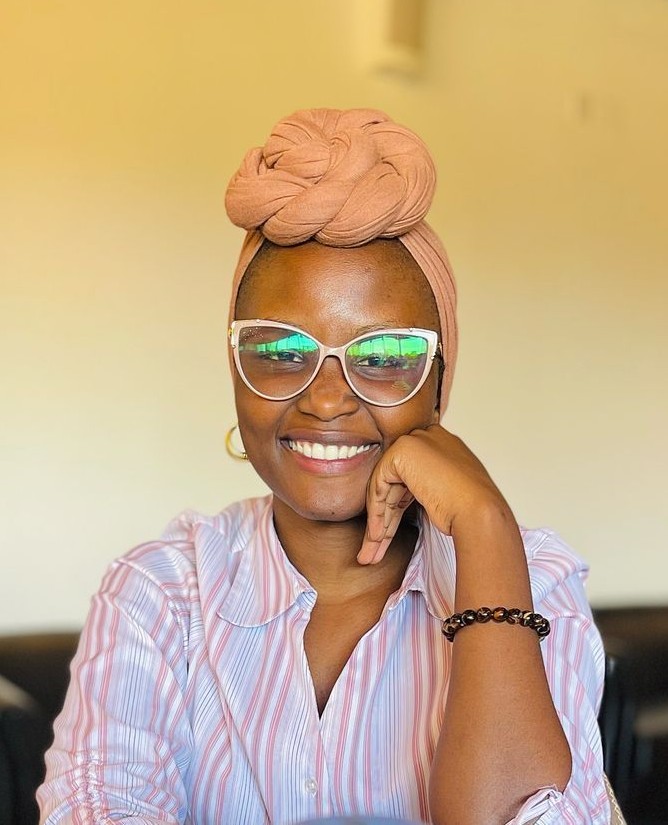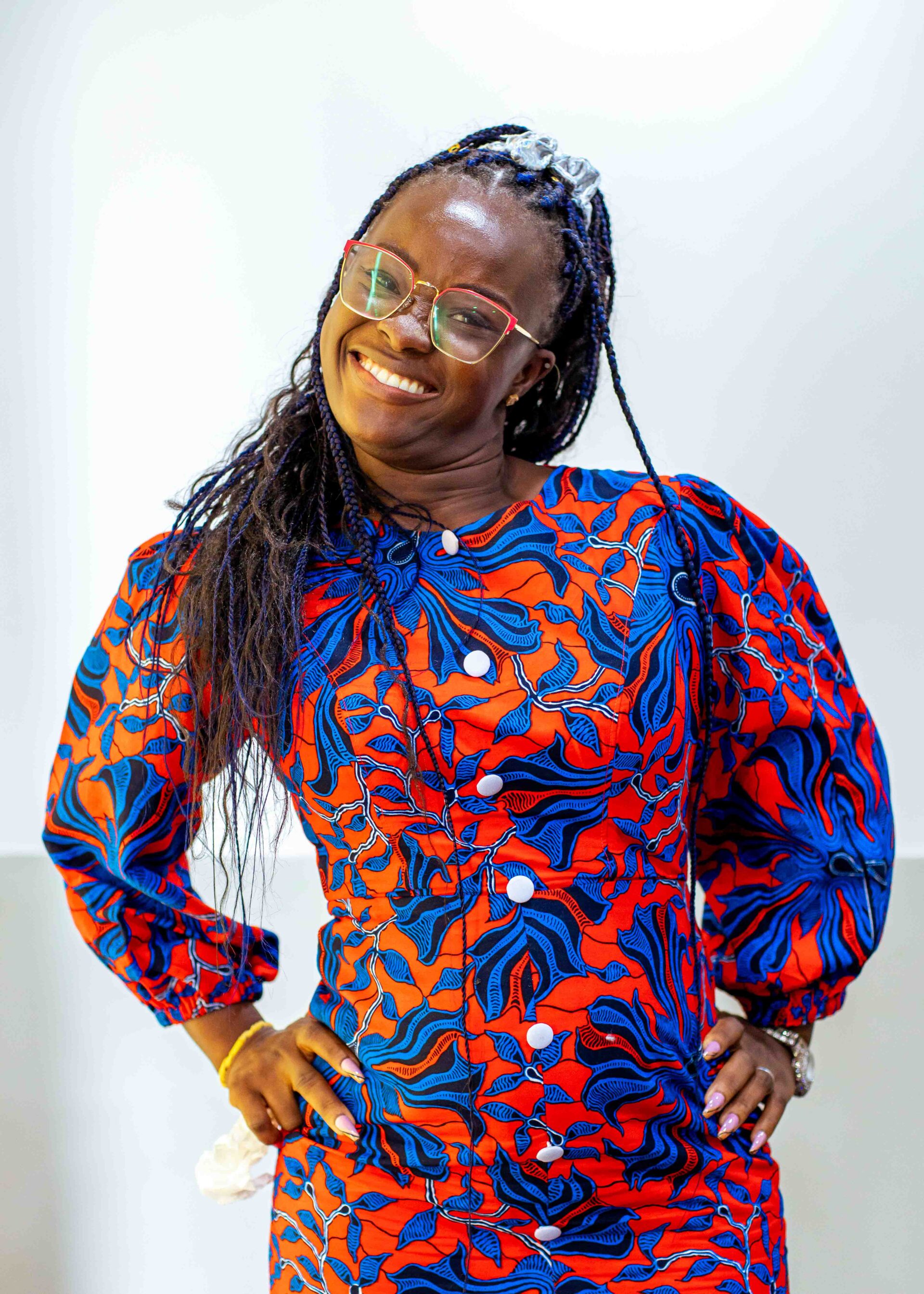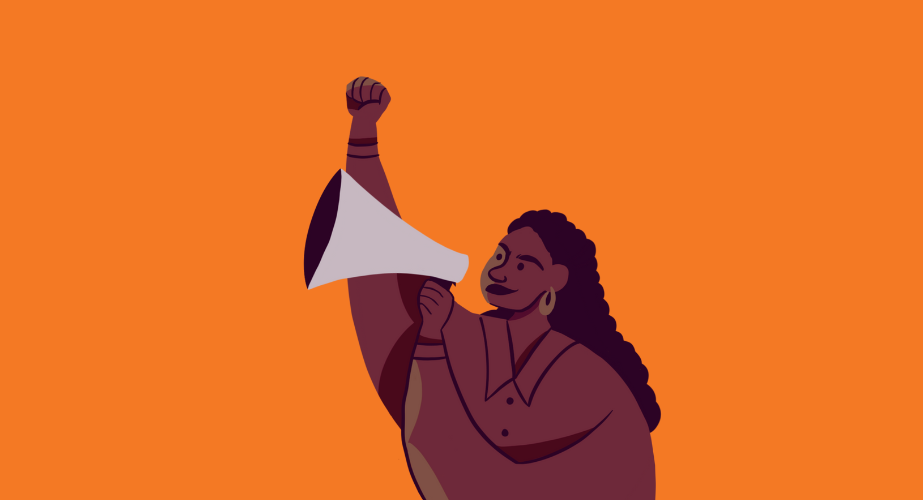A participatory fund for women with disabilities.
Earlier this year we launched the Disability Justice Fund for Women. This fund has been designed by women with disabilities in Ghana, Uganda and Tanzania, to make sure it meets the real needs of disability justice activists in these countries.
Now, grants have been given out to grassroots organisations led by women with disabilities – a group that are often overlooked when it comes to funding. The money will be used by grantees in Ghana, Tanzania and Uganda to support their work advocating for justice and equality, and supporting the African Disability Protocol – a framework for disability justice in Africa, as well as activities like income generation, making spaces more accessible, and strengthening disability justice movements to work together.
Grantee Spotlight: WhatGirlsWant, Tanzania.

Christine leads the group’s communications and advocacy. She told us:
“After realising our common goals, we came together to form a group. Our vision is to champion gender equality and create safe spaces where young women, especially those with disabilities, can access their rights.
“With the grant, we plan to implement the Women Ability Project, aimed at empowering women and girls with disabilities. Our focus will be around increasing awareness about rights, and educating on sexual and reproductive health and rights. We will conduct workshops, create inclusive learning materials and provide safe platforms for girls with disabilities to learn about their bodies, their rights, and the services available to them.
“This grant is different, because the process was more inclusive, since those deciding are experts by their own lived experiences. Giving them a chance means empowering the voices of women with disabilities to lead change, making the funding process more just, relevant and impactful.
“My hope is to see a future where women and girls with disabilities are not only included but are leading in shaping policies, telling their stories and accessing their full rights without discrimination or barriers.”
Over the coming year we will share stories from the grantees and how they are using these funds to make change.
How was the fund designed?
Earlier this year, women with disability representatives from Ghana, Tanzania and Uganda met to discuss the needs of the disability justice movement in their communities. They paid particular focus to those groups who have least access to funding and resources, including marginalised women, those from rural areas, and girls.
They designed the fund with care to make sure it is accessible to these groups. One of the women involved in designing the fund told us:
“It was a great and unique opportunity for me as a woman with disability to be part of a grant-making mechanism that will meet the needs of women and girls with disabilities in my country and other parts of Africa. This is awesome and has never happened before. Importantly too, I was privileged to meet other women with disabilities from diverse cultures.
“Designing the fund ourselves as women with disabilities offers us the golden opportunity to design a specific grant that speaks so much to the specific needs of women and girls with disabilities at all levels especially at the grassroot.”
– A member of the design team.
How were grant decisions made?
This grant was jointly designed, and decisions were made in collaboration between the ADD International team and women with disabilities.

“The fund seeks to contribute to a more just and inclusive society where all individuals, regardless of their disabilities, have equal opportunities.
“The involvement of disabled women from Ghana, Uganda, and Tanzania in designing the fund and selecting grantees is crucial because it ensures cultural relevance. The fund has been tailored to address the specific needs and challenges faced by disabled women in these countries.”
All applicants have now been contacted about the outcome of their application. If you have applied and not heard anything, please get in touch at disabilityjusticewomen@add.org.uk.
Safety and Security.
If you have any concern about safety or security during the application process and you would like to speak to us, please email us on disabilityjusticewomen@add.org.uk or message on WhatsApp via +254 735 486754
Complaints and Feedback
If you wish to raise a complaint or share some feedback with ADD about this project please contact Zoë Corden, Gender and Safeguarding Manager, by email on zoe.corden@add.org.uk
Safeguarding
ADD expects high standards of conduct and professionalism from all our employees and representatives. For more information about safeguarding at ADD, or to raise a concern regarding behaviour, please visit our safeguarding webpage.
find out more

What is the adp?
Learn more about the African Disability Protocol, which this fund aims to support.

faqs
Read our Frequently Asked Questions to learn more about the fund.

swahili
Read information in Swahili to find out more about the fund.

